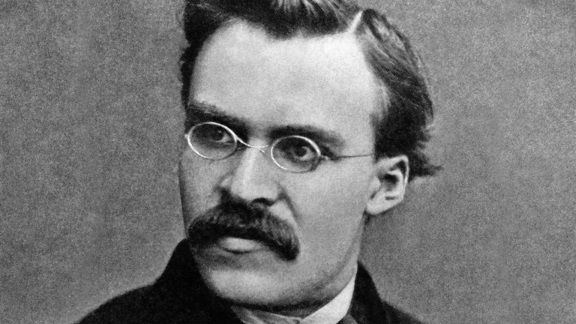Friedrich Nietzsche was not your average philosopher. He didn’t aim to comfort readers—he aimed to wake them up. Often poetic, sometimes scathing, and always provocative, Nietzsche’s quotes distill his explosive insights on power, morality, individualism, and meaning.
This collection of Nietzsche quotes captures the raw energy of his thought and the revolutionary challenge it poses to conventional wisdom. Whether you’re diving into Thus Spoke Zarathustra or just curious about the man behind the mustache, these quotes offer a window into one of the most influential—and misunderstood—minds in philosophy.
On Morality and Values
“God is dead. God remains dead. And we have killed him.”
Nietzsche’s most famous—and most misinterpreted—line. He wasn’t celebrating atheism; he was mourning the collapse of shared moral frameworks in modern life.
“He who fights with monsters should look to it that he himself does not become a monster.”
A stark warning about the dangers of moral crusades. In confronting evil, we risk becoming what we hate.
“Morality is the herd-instinct in the individual.”
Nietzsche saw traditional morality as a social construct that suppresses individuality and creativity.
“What is good?—All that heightens the feeling of power, the will to power, power itself in man.”
This provocative redefinition of good centers on human flourishing through strength, autonomy, and vitality.
On Truth and Knowledge
“There are no facts, only interpretations.”
Nietzsche challenges the objectivity of truth, reminding us that every claim is shaped by perspective.
“Convictions are more dangerous enemies of truth than lies.”
When we cling too tightly to beliefs, we stop asking questions—and that’s where danger begins.
“He who has a why to live can bear almost any how.”
This quote, later adopted by Viktor Frankl, captures Nietzsche’s existential insight into meaning as a survival mechanism.
“The most perfidious way of harming a cause consists of defending it deliberately with faulty arguments.”
A pointed lesson in intellectual honesty—and a timeless critique of bad faith.
On Individualism and Self-Overcoming
“Become who you are!”
Nietzsche calls on individuals to reject conformity and embrace the challenge of self-creation.
“No price is too high to pay for the privilege of owning yourself.”
Personal sovereignty was, for Nietzsche, a hard-won but noble goal.
“The higher we soar, the smaller we appear to those who cannot fly.”
A reminder that greatness often invites resentment from those unwilling or unable to rise.
“The snake which cannot cast its skin has to die.”
Rebirth and transformation are central to Nietzsche’s vision of a full life.
“A man’s maturity consists in having found again the seriousness one had as a child at play.”
Playfulness, creativity, and purpose are not contradictory—they are essential to authenticity.
On Suffering and Strength
“To live is to suffer, to survive is to find some meaning in the suffering.”
Nietzsche doesn’t sugarcoat life’s hardships. Instead, he challenges us to make suffering meaningful.
“That which does not kill us makes us stronger.”
A cliché now, but revolutionary then. Nietzsche saw adversity as the crucible for personal growth.
“One must still have chaos in oneself to be able to give birth to a dancing star.”
Creativity, for Nietzsche, is born not from order but from the fertile depths of inner turmoil.
“The surest way to corrupt a youth is to instruct him to hold in higher esteem those who think alike than those who think differently.”
True education fosters independence, not obedience.
On Legacy and Eternity
“I am not a man, I am dynamite.”
Nietzsche knew his ideas were disruptive. He saw himself as a philosophical explosion.
“In individuals, insanity is rare; but in groups, parties, nations and epochs, it is the rule.”
A darkly humorous jab at herd behavior and mass movements.
“The greatest weight – What if some day or night a demon were to steal after you and say: ‘This life as you now live it and have lived it, you will have to live once more and innumerable times more…’”
This is Nietzsche’s eternal recurrence—his ultimate test of affirmation. Would you live your life again, exactly as it is?
Nietzsche’s words remain as thrilling, challenging, and unsettling today as they were over a century ago. His call to reject false comforts and affirm life’s chaos and beauty speaks to anyone searching for meaning in a fractured world.
Want to dive deeper into Nietzsche’s life and philosophy? Check out our full article on Friedrich Nietzsche and see how his thought continues to shake the foundations of Western thought.
Related articles:
How German Philosophy Shaped the Modern World
Exploring the Depths of German Philosophy
Famous Germans: Icons Who Shaped the World








